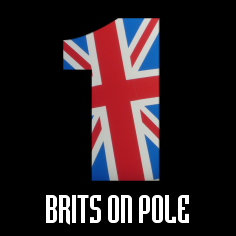One of the most discussion-provoking things we have ever posted on this site was a comment that we’d like to see more female drivers participating in motorsport generally, and maybe even making it onto the Formula One grid.
With Sarah Fisher setting up her own IndyCar team, Danica Patrick winning her first race, Katherine Legge successfully making the transition from an open-wheel to a tin-top series and Laleh Seddigh generating interest around the world, it seems that this is still a hot topic in 2008.
It’s one that ITV F1 journalist Louise Goodman has tackled in her latest Q&A column for the broadcaster’s website. And it’s nice to get the views of someone who knows – she is, after all, the first woman to participate in a pit stop after she helped changed a wheel for Tiago Monteiro, then driving for Midland, at the 2006 British Grand Prix.
Here’s what she has to say on the subject – but scroll down to the bottom of this post for a link to the full column, which also deals with issues like the rights and wrongs of Nick Heidfeld’s recent refuelling penalty, McLaren’s development freeze and who the next breakthrough Grand Prix winner will be.
Louise answers back
I have loved F1 for many years but get infuriated with the male domination of the sport. With Danica Patrick’s recent IndyCar win, do you feel women have finally earned some more recognition with the sport? Maria Hobbs – Chatteris, Cambridgeshire.
I suspect that men will always dominate motorsport in terms of sheer numbers, Maria, but don’t worry — our influence is gradually growing!
Danica Patrick’s victory will hopefully help educate the wider world to the fact that women can succeed in motorsport, but I’d say they’ve been recognised as having a valuable contribution to make within Formula 1 for a while now.
When I first turned up there you could count the number of girls working in the paddock on the fingers of both hands, whereas there are hundreds of us now. Quite literally.
That’s due in part to the growth of areas like marketing, PR and corporate entertainment which have traditionally been industries where women work. Some of the girls that started out at the same time as me are now running very successful companies in those fields.
And we’re seeing more girls on the technical side these days too. It’s a competitive business; the teams really don’t care if an engineer is male or female — they just want the best engineer.
